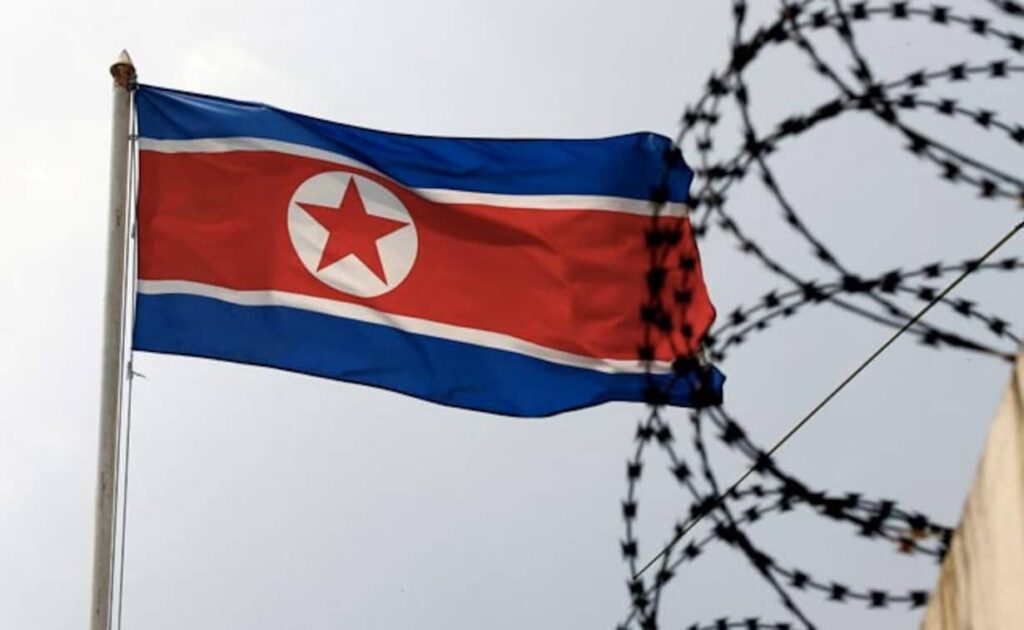
North Korea Fires More Ballistic Missiles, Seventh In Two Weeks: Seoul
North Korea fired two ballistic dumdums into the ocean early Sunday, Seoul’s service said, the seventh similar launch in two weeks, just hours after a nuclear- powered US aircraft carrier wrapped up common drills off the Korean promontory.Seoul, Tokyo and Washington have ramped up combined nonmilitary exercises in recent weeks, roiling Pyongyang, which sees them as practices for irruption and justifies its blitz of bullet launches as necessary” countermeasures”.
With addresses long stalled, Pyongyang has doubled down on its banned munitions programmes, firing an intermediate range ballistic bullet over Japan last week, with officers and judges advising it has completed medications for another nuclear test.
South Korea’s service said Sunday it had” detected two short- range ballistic dumdums between 0148 and 0158( 1648- 1658 GMT) fired from the Munchon area in Kangwon fiefdom towards the East Sea”, pertaining to the body of water also known as the ocean of Japan.The dumdums” flew roughly 350 kilometres( 217 long hauls) at an altitude of 90 kilometres”, Seoul’s Joint Chiefs of Staff said in a statement, calling the launches a” serious provocation”.
Tokyo also verified the launches, with the seacoast guard saying the dumdums had landed outside Japan’s exclusive profitable zone.Japanese elderly vice defence minister Toshiro Ino said Tokyo was analysing the dumdums, adding that” either one of them has the possibility of being a submarine- launched ballistic bullet( SLBM)”.
Seoul said last month it had detected signs the North was preparing to fire an SLBM, a armament Pyongyang last tested in May.The US service’s Indo- Pacific Command said in a statement that they were” consulting nearly with our abettors and mates”, adding that the launch stressed the” destabilising” nature of North Korea’s bullet programmes.
North Korea’s bullet tests generally aim to develop new capabilities, but its recent launches,” from different locales at different times of day, may be intended to demonstrate military readiness”, said Leif- Eric Easley, a professor at Ewha University in Seoul.The Kim governance is trying to force Seoul, Tokyo and Washington to abandon their trilateral security cooperation.”At an exigency meeting of Seoul’s National Security Council following the bullet test, still, South Korean officers pledged to strengthen that cooperation, according to a statement.
The recent torrent of launches is part of a record time of munitions tests by insulated North Korea, which leader Kim Jong Un last month declared an” unrecoverable” nuclear power, effectively ending the possibility of denuclearisation addresses.
Seoul, Tokyo and Washington have ramped up common military drills in response, with the USS Ronald Reagan aircraft carrier and its strike group redeployed to the area last week.On Thursday, Seoul’s service said it had climbed 30 fighter spurts after 12 North Korean warplanes offered a rare conformation flight and apparent air- to- face blasting drills.
Go Myong- hyun, a experimenter at the Asan Institute for Policy Studies, said North Korea was trying to claim that the nature of its warrants busting munitions tests were the same as the protective joint drills between the abettors North Korea is trying to give parity through its uninterrupted bullet launches,” he told AFP.
Judges say Pyongyang is inspired to continue its munitions testing, confident that deadlock at the United Nations will cover it from farther warrantsLast week, the UN Security Council held an exigency meeting to bandy Pyongyang’s launch over Japan, which officers and judges said was a Hwasong- 12 that probably travelled the longest vertical distance of any North Korean test.
But at the meeting, North Korea’s longtime supporter and profitable donator China criticized Washington for provoking the torrent of launches, with Deputy Chinese Ambassador to the UN Geng Shuang criminating the United States of” poisoning the indigenous security terrain”.US minister to the UN Linda Thomas- Greenfield called for the” strengthening” of being warrants on North Korea, commodity China and Russia nixed in May.
The council has been divided on responding to Pyongyang’s nuclear intentions for months, with Russia and China on the sympathetic side and the rest of the council pushing for discipline.To Kim’s benefit, there are other contingencies enwrapping the slate of US policymakers, which involve his two primary backers, Russia and China,” Soo Kim, an critic at the RAND Corporation, told AFP.
So we are not likely to see Moscow or Beijing supporting the US on the North Korea issue anytime soon,” she said.officers in Seoul and Washington have been advising for months that Pyongyang will also conduct another nuclear test, probably after China’s Communist Party Congress latterly this month.A flurry of bullet tests like the bowe have seen could indicate a figure- up to a nuclear test, but prognosticating the timing with any perfection is relatively grueling ,” US- grounded security critic Ankit Panda told AFP.

